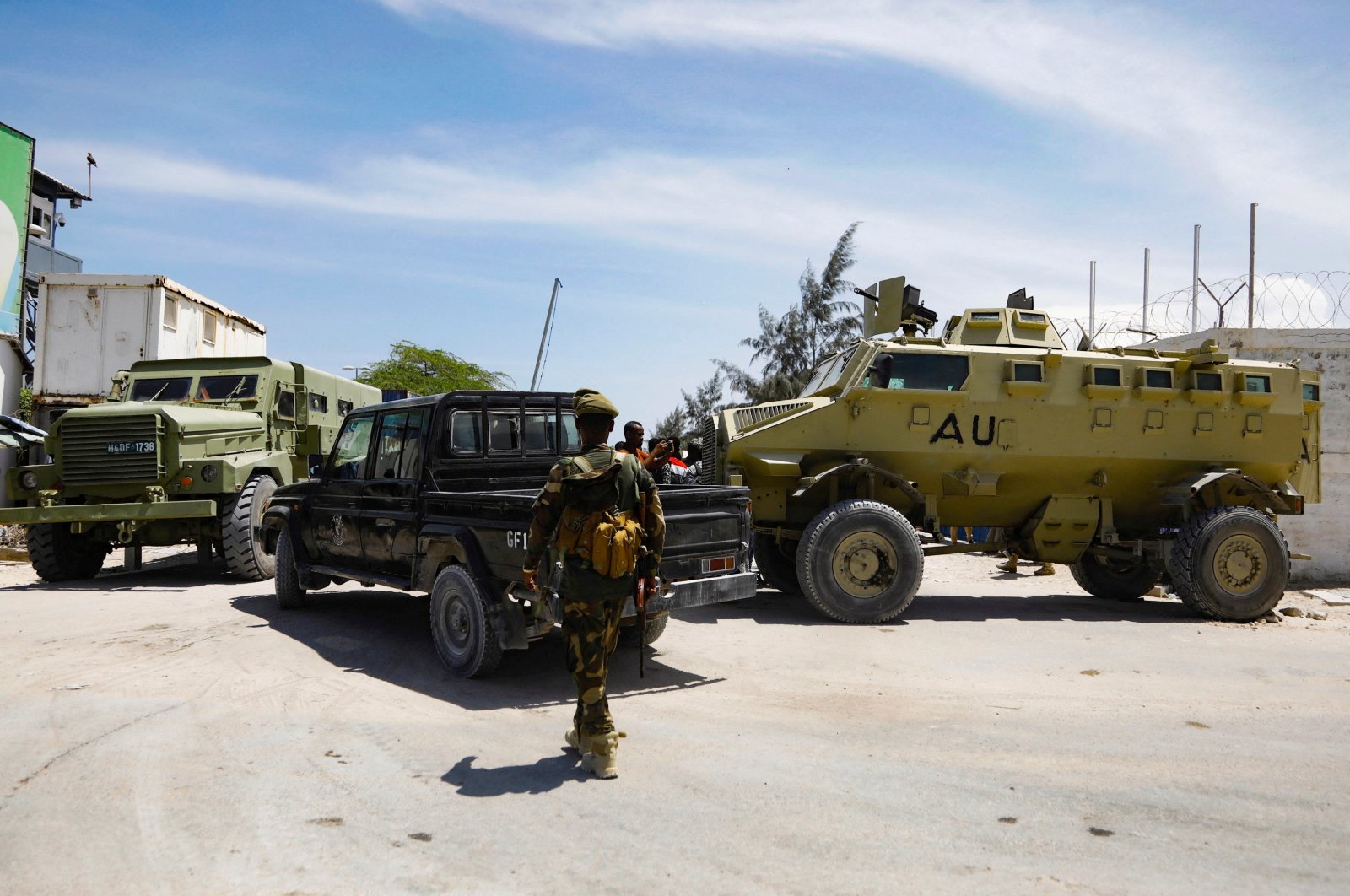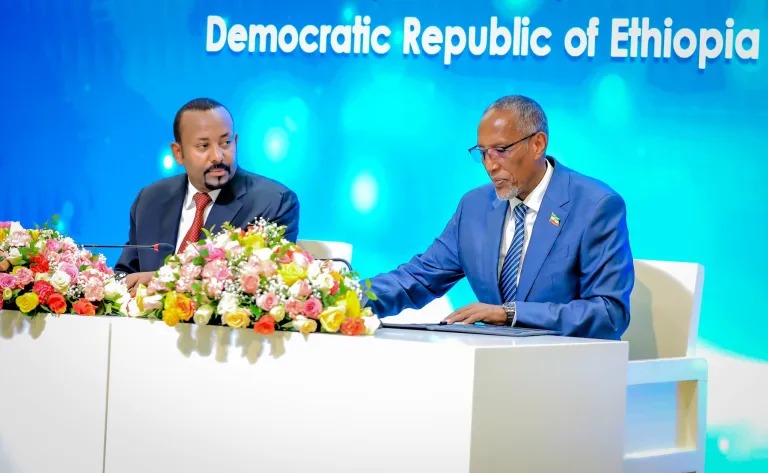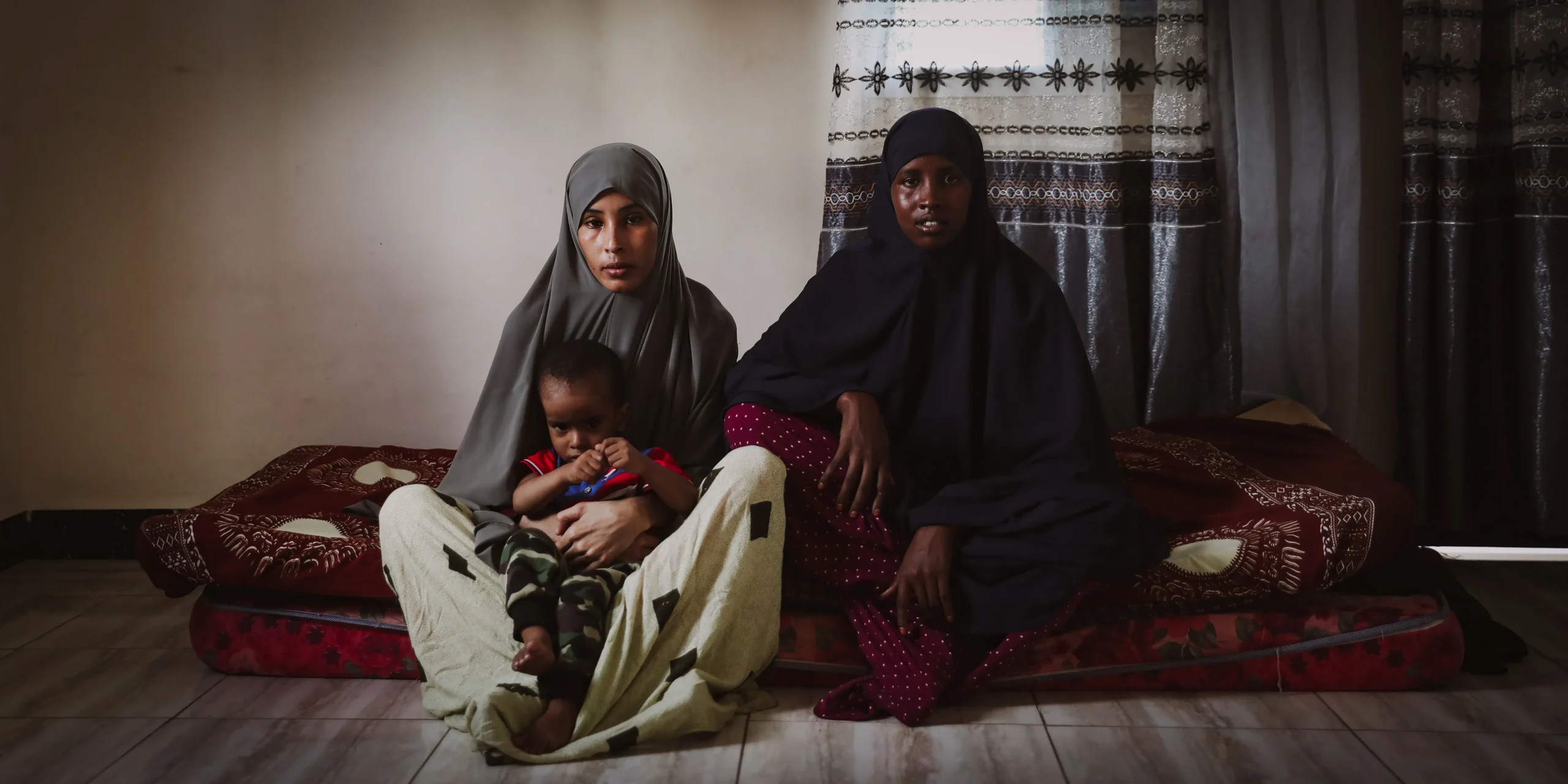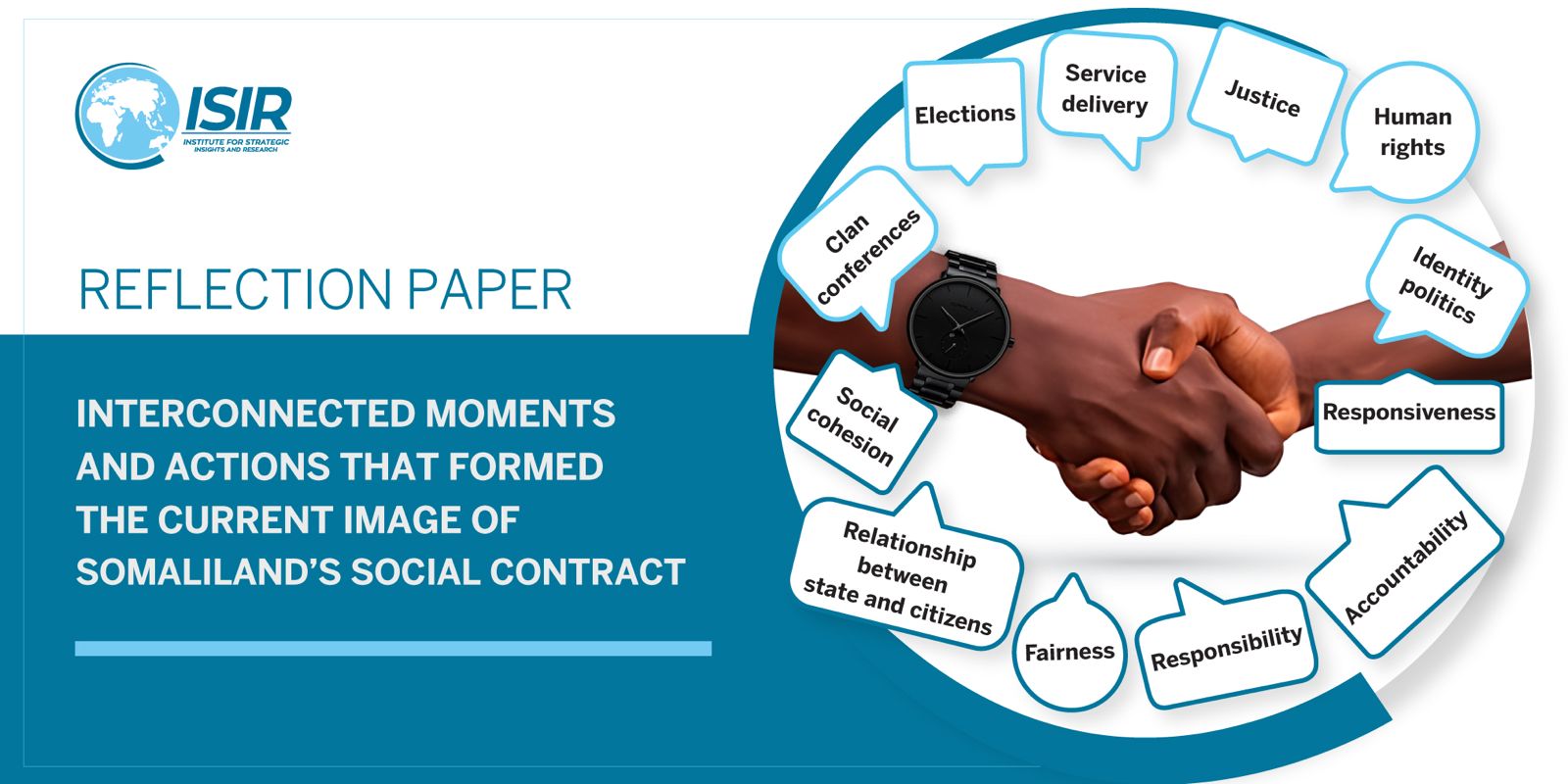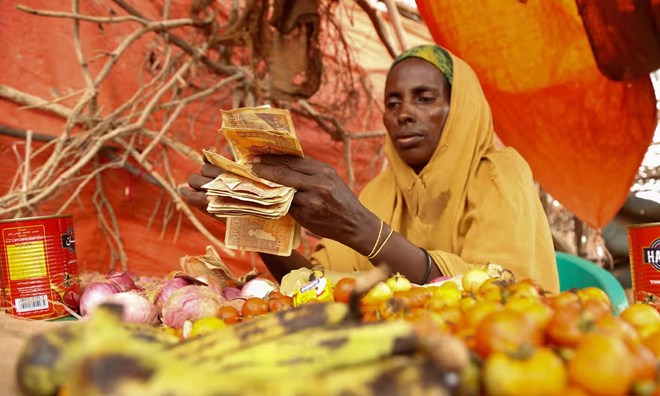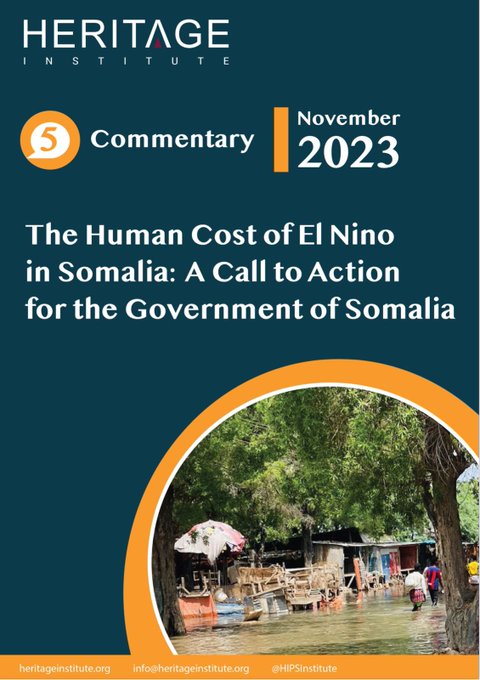It has been 60 years since the Italian Somaliland and the British Somaliland became independent from their respective colonial powers to form a union that miserably failed 30 years later. After a long ever-morphing saga of blood, destruction, and loss of identity Soomaalinimo (Somaliness), these two political entities, legally known as Somalia, have just concluded yet another conference to negotiate a reunion or declare their relationship irreconcilable difference and amicably part ways. Many such conferences were hosted by Turkey, and all agreements reached in Istanbul are still pending.
While such narrative may have yielded some traction for domestic consumption, in reality, the latest so-called reconciliation on the future of Somalia and Somaliland was nothing more than a geopolitical racket of dangerous consequence to the Somali people on both sides.
Due to the secrecy in which the initiative was shrouded, the last minute marching orders given to the top leaders on both sides to come, the foreign heads of states who participated, and the outcome of appointing a reconciliation committees from both sides compels any objective analyst to conclude this was a distraction tactic for a more serious or sinister issues.
Since 2012, both sides—Somalia and Somaliland—have appointed similar technical committees a number of times only to see them fizzle before the nostalgic thrill wore off. On more than one occasion, deal-breakers were planted right into the very committees that were established to negotiate a win/win outcome for both sides. And this time is no exception.
The Foreign Engines
On June 13th, before any announcement or news bulletin from the Federal Government of Somalia or Somaliland, Djibouti President, Ismail Omar Guelleh, tweeted “Tomorrow in Djibouti, I will chair a meeting between President Mohamed Abdullahi Farmajo and President Moussa Bihi Abdi to follow up on the mediation efforts between the two leaders. I have also invited Prime Minister Abiy Ahmed to attend the discussions.” What a comical irony. So, Abiy was in the neighborhood running some errands before getting invited to drop in the powwow? He must have been as he came dressed for the part.
Seriously though, Abiy Ahmed, the Ethiopian Prime Minister, was the most important official who attended that meeting. He is the conduit or the human thread running through all three competing grand strategies that I outlined in an article entitled Transformation Euphoria in the Horn of Africa that I wrote a couple of years ago. None of them earnestly consider Somalia a strategic partner. Each considers it the perfect dispensable pawn with the ideally useful inept and corrupt leaders.
Despite the inflated excitement surrounding the Djibouti Conference on Somalia and Somaliland, collectively they remain, as I wrote before, “the most important political theatre in the 21st century as it is where geopolitics, geo-economic, and geo-religious dynamics intersect and interplay.” It is where strategically most important waters—Indian Ocean and the Red Sea—intersect and one of the world’s largest untapped oil and gas resource is, due to chronic corruption, widely exposed for exploitation.
To understand President Guelleh’s incentive to give cover to the real deals taking place off the center stage, one must remember that this is the 20th anniversary of the Arta Peace Conference that put Guelleh on the world stage and deservedly so. Guelleh is facing a groundswell of domestic discontent and growing accusations of human rights violations and corruption. He is also the leader that U.S considers the one who compromised its geopolitical poker game against China. And he is well aware there is no way he would defuse his domestic challengers if he does not have political capital in the West.
Now you see, now you don’t
International predators—including next door neighbors—and their domestic partners know how easy it is to send a clan-intoxicated, cash-addicted bunch of charlatans from both sides into a dramatic fool’s errand.
The Houdinis of corruption, headquartered in The Villa Somalia, are determined to auction the licensing of Somalia’s oil and gas by the first week of August 2020 without adequate and independent checks and balances. Granted President Farmajo signed into law the so-called Petroleum Bill. But, who were the experts who drafted it and the Parliamentarian experts or other independent committee that scrutinized it to protect Somalia from pending exploitation? Equally important, were all seven Somali presidents on board? The answer is: none and no. Neither Somaliland, nor Puntland, and by extension, Jubbaland are on board. Their unequivocal consent is necessary for some of these licensing shenanigans to materialize and to prevent potential resource wars.
In the meantime, the Houdinis have successfully fed two false narratives to a good portion of the Somali public: Somalia’s international loans were forgiven and the International Monetary Fund and the World Bank are giving Somalia a free grant of $800 million. This dangling carrot was good enough to lure Somaliland leadership and it was hoped to boost Presdiden Farmajo and Prime Minister Khaire’s chances for reelection by parliament. Their executive office has already co-opted the parliament unlike any of its predecessors. None of the numerous foreign deals it has been making or new loans received was brought before the parliament for scrutiny or oversight.
The Counterintuitive Option
Somalia is a web of competing and counter-competing interests and predatory scams. To untangle and sift through all these mostly existential threats requires a moratorium period to administer the shock therapy that it so desperately needs to survive as a nation.
Current state of affairs is such that: foreign sponsored national reconciliation has been a periodical ritual since year 2000. The completion and ratification process of the transitional (provisional) constitution that already costed over $60 million has been on-going since 2004. The periodical U.S. aerial bombardments have been on-going since 2007 and are now intensified to bi-weekly deadly drones. AMISOM (including Ethiopia & Kenya with direct conflict of interest) has been fighting al-Shabaab since 2007. The Somali national army has been under a never-ending process of rebuilding since 2004 while Somalia still remains under UN arms embargo.
Furthermore, the balkanization process of Somalia into clan-based political entities; each with its own foreign, defense, and immigration policies, so to speak, has been on-going since 1991. Each of these entities is ruled by an Alpha clan that claims exclusive or zero-sum rights over all other clans. And each is founded or sustained by a hate narrative.
Sometimes what one says is the most important; other times, how one says it; other times, where one says it; other times, why one says it; yet other times, who says it. Mindful of all that, I opted to go on record and recommend the ‘T’ option. Not terrorism, but trusteeship. For a context, allow me to digress a little in order to describe these four stages of evolution.
In 1992, a small group of diverse Somalis founded a volunteer-based organization to help assist Somali refugees in Kenya with blankets and used clothes, and help settle the very few who found sponsors. That small group developed close relations. So one night, after dinner, someone raised the most sensitive question at the peak of the Somali fratricide: How do we get out of this mess?
Each one of us was given enough time to ponder the question and add something into the brainstorming basket, so to speak. Each one of us offered something that would be acceptable at the Main Street or the Macca Al-Mukarama Street. All except one of the group who said:
- We need to ask for ‘Trusteeship’ to provide us time to cool off, address grievances, and streamline our national narrative
- We need to change the capital, even for temporary
- We need to redefine the five corner start in the flag to represent values of coexistence instead of lost territories that since accepted to become part of another nation or been recognized as a nation of its own.
In 2004, at the Israaca annual conference held in Columbus, members have thoroughly debated and finally approved a policy paper advocating the UN to consider placing Somalia in a trusteeship program.
At its peak, that organization—once considered Somalia’s great hope—had a membership of more than 240 of what many considered as some of ‘Somalia’s best and brightest.’ They were from across clan and ethnic lines.
The organization’s modus operandi was to identify topics essential for peace and for the reconstitution of Soomalinimo or sense of nationhood. Debate it for two weeks. Elect an ad hoc committee to draft a policy paper to be approved at the annual conferences.
In 2008, the regional multi-national assembly or Ethiopian conduit known as IGAD has passed what it called “Declaration of the 13th Extraordinary Session of the IGAD Assembly of Heads of states and Governments” in which the transitional government led by President Abdullahi Yusuf to “sign onto a scheme mimicking the UN Trusteeship only to place Somalia at the mercy of its (then) occupier, Ethiopia. This is a case of putting the fox in charge of the chicken barn…”
In 2013, several months after the transitional period has ended, the United Nations Political Office for Somalia was closed, and the country was welcomed back to the international community of nations, the FGS led by President Hassan Sheikh Mohamud, agreed to allow the establishment of UNSOM- United Nations Assistance Mission In Somalia to keep Somalia in an indefinite silent trusteeship. Within this on-going arrangement, the FGS cannot independently enact any significant domestic or foreign policy without getting clearance from UNSOM which is accountable to no Somali office, even symbolically. Never to be left out, President Mohamud also agreed for Ethiopia to join AMISOM.
Somalia is in a muted trusteeship in which U.K. still remains the country’s pen-holder or the official gate-keeper of all Somalia related issues at the UN Security Council.
The trusteeship system was established to help the Trust Territories (former colonies) attain the capacity for self-determination and self-governance. This is good so long as there is a trustee willing to help in capacity-building and a trustee council providing the necessary supervision and scrutiny. Once The UN Security Council agrees to such proposal, a friendly country with proven goodwill toward Somalia will be invited to serve as a trustor for a period of 4 years.
Painful, ego-wounding, and vanity-shattering as it may seem, that official and transparent humiliation maybe the precise condition to level the playing field and expose clan-based false narratives of superiority and equally humble all alpha clans in perpetual zero-sum clan competition: with your mentality Somalia is worse off today than before independence six decades ago.
It is the only way to streamline the multilayered Somalia’s domestic and foreign problems; the only way to form an independent reconciliation commission that is not funded and framed by foreign powers. It is the only way to genuinely negotiate a constitution that sidelines all forms of clan-based rights in favor of citizenship rights and Soomaalinimo.
- Follow author via twitter @Abukar_Arman or abukararman.com
Categories: Opinion








